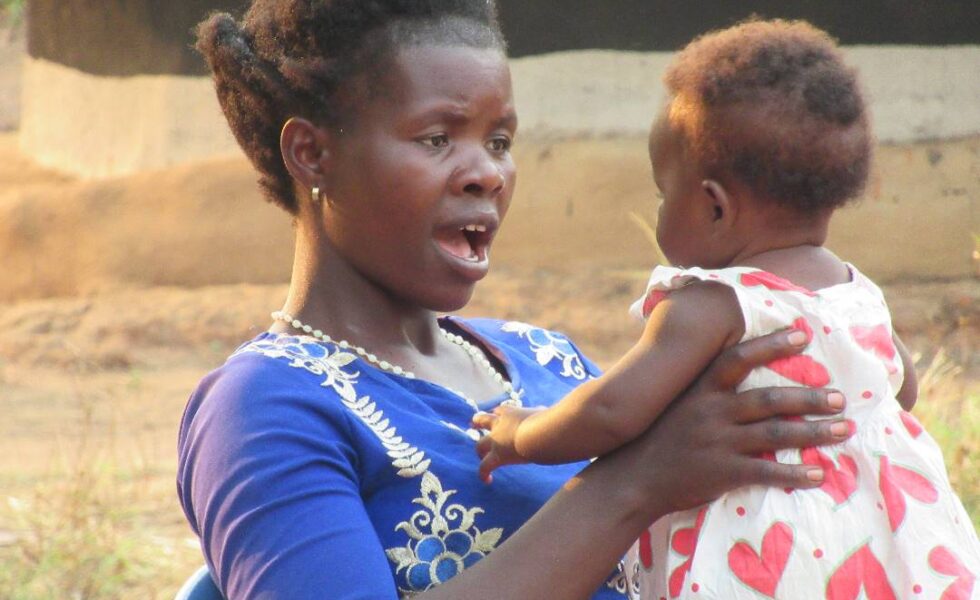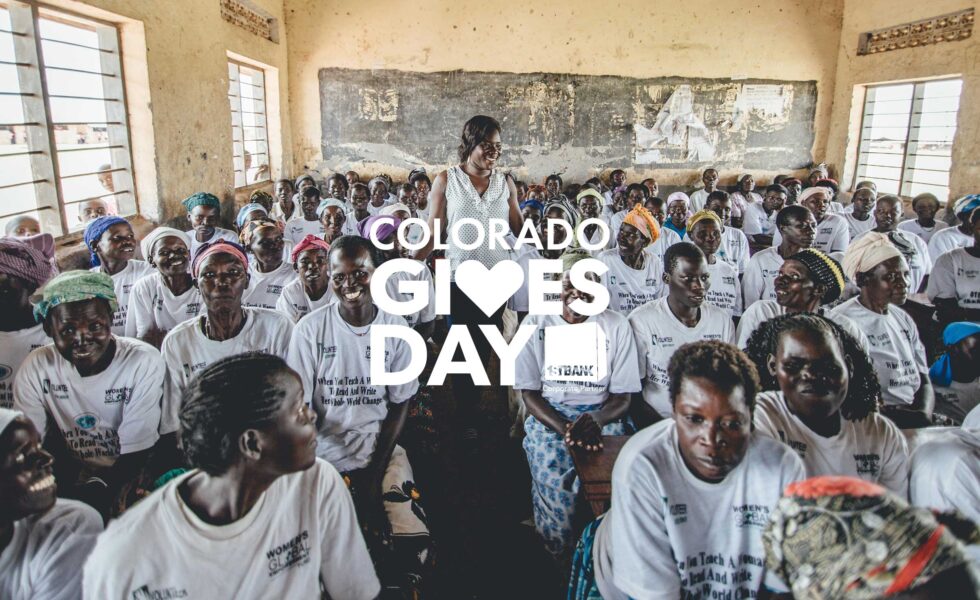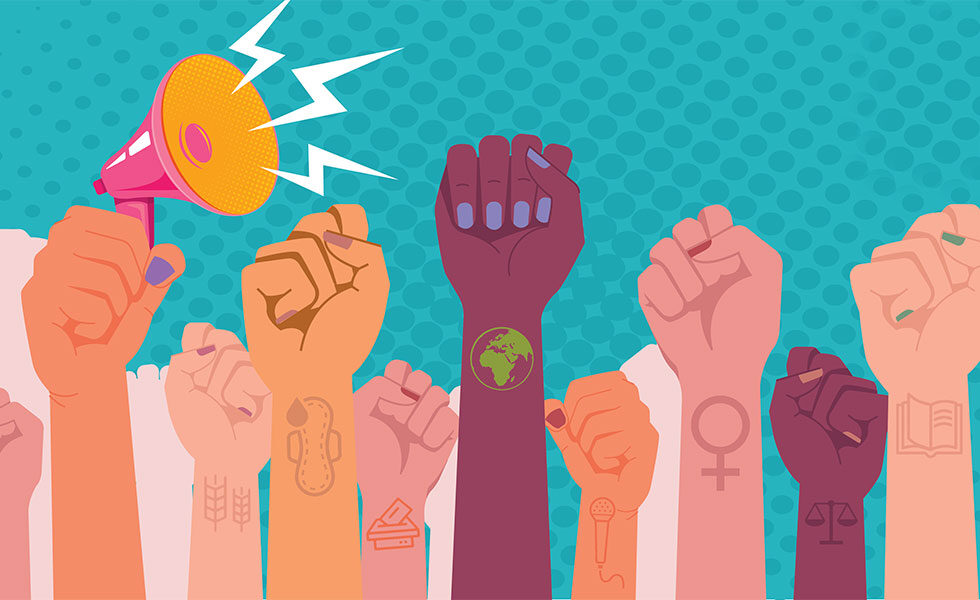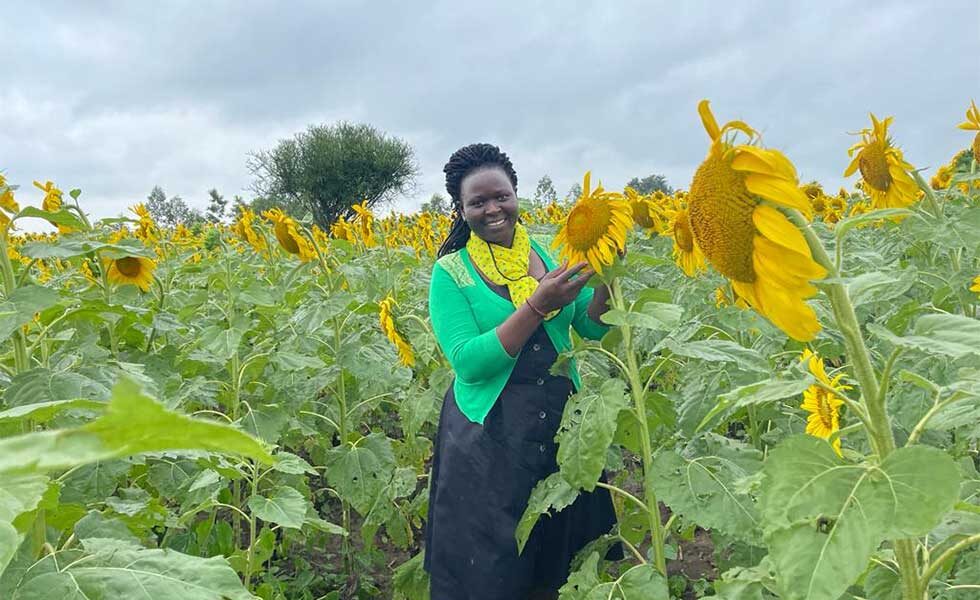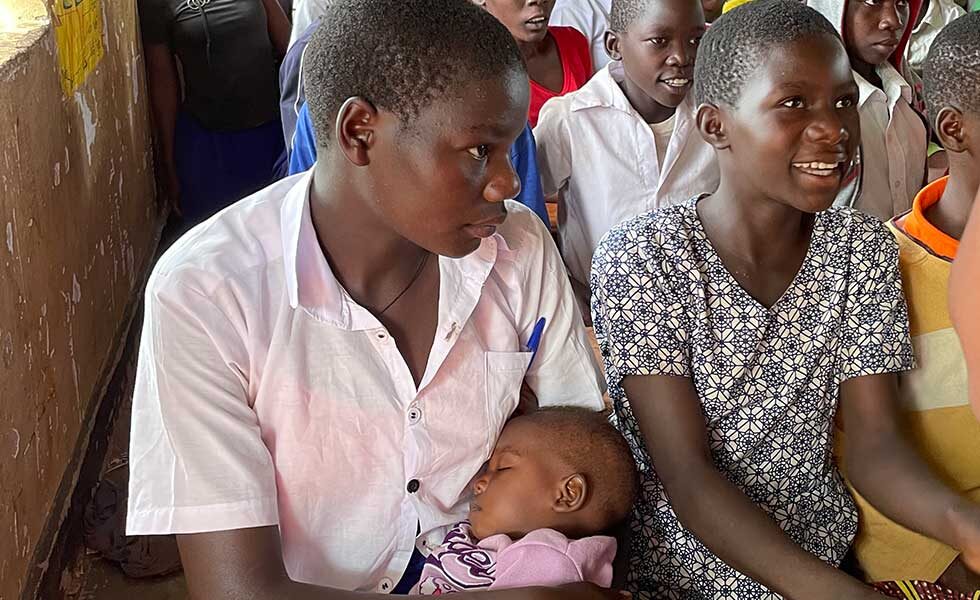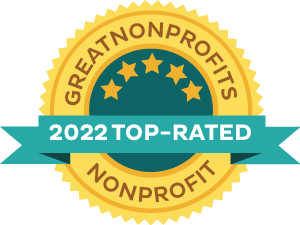
Having Enough Food Makes My Family Safe
Field report, February 2023
Linda is a 30-year-old mother of 4 living in Bungatira Village, Gulu District. Her family suffered from severe food insecurity in 2021, allowing the family only one meal a day. Due to the ongoing war in Ukraine, rising fuel costs and inflation in East Africa, Linda’s business of selling food, grains and cooking oil collapsed.
It was so hard for me to understand why the price went so high in a short period. And my business collapsed I ununderstood latter that factors was due to conflicts between Russia and another country, I asked why other countries fight and we suffer? My family resorted to one meal a day. Thankfully WGEF came with a soft agro support loan of $370 that enabled me to prepare my garden, purchase seeds and inputs after 3 months the first harvested started my journey to recovery. I learnt that having enough food makes a family safe.
Now we eat 3 meals a day, I can buy food and have a balanced diet occasionally, and I have restocked again my shop with cereals rebuilding my business again and it’s growing slowly, I know it will take some time, but we are resilient now.
WGEF’s agro support program is critical in our region I have tested the benefits, it can save many families in the region
— Linda, WGEF member
Women’s Global Empowerment Fund is a 501(c)(3) nonprofit that creates innovative economic, social, and political opportunities for women and families in the post-conflict region of northern Uganda. Those opportunities include literacy training, a unique microenterprise model and agriculture initiative, accompanied by business and leadership development training, health initiatives, sexual violence education, social justice programming, and more. WGEF helps these communities transform by becoming their own advocates and creating their own solutions to move themselves forward.
Our agriculture initiative has enabled local food economies, increased food security and the health and well-being of families.
Colorado Gives Day 2022 is Just Around the Corner!
Invest in Women on Colorado Gives Day
December 6, 2022
Donate today to join our revolution in creating a more equitable world!
Annual Update and Report
Women’s Global Empowerment Fund offers women the tools to combat poverty in one of the world’s most marginalized regions.
Women’s Global Empowerment Fund understands that for vulnerable communities and countries in the Global South, local food economies must be supported; a new Tilapia Farming Initiative is meeting the critical need for food diversity and nutrition thru important and local fish farming. Our Agriculture Program has created an entire local food economy by supporting women farmers, suppliers, and distributors, increasing food security locally and regionally during uncertain times.
Gulu Women’s Resource Centre (GWRC) focuses on women leading for peace and equality. Working from GWRC, the Access to Justice Teamhas received 711 cases, with an additional 128 referred by other community partners, including FIDA Uganda, Uganda Policy, Legal Aid, and coalition members to end domestic violence. Many of these cases relate to domestic violence, early or forced marriage, and land disputes.
Our Family Mediation Initiative prevented 368 girls from forced and early marriage; by working with families to find alternatives, and providing legal information, and solutions, hundreds of girls have the opportunity to live free from violence and coercion, staying safe and in school.
543 New Farmers Preventing Hunger and Food Insecurity
WGEF is focused on food security in light of looming famine. Local food economies are the answer to providing healthy and affordable food in the face of food insecurity and global food shortages.
These new farmers are focused on growing sunflowers to address the global shortage; maize and cassava to replace the lack of wheat, and other crops to challenge climate changes. It is this holistic and sustainable approach that holds the most hope to avoid massive human suffering. Join our local food revolution!
Stories From Gulu, Summer 2022
HPI Helps Keep All Girls in School and Safe!
“Every Day Is a Step to My Dream”
– Dorah, HPI participant
“When our school told us that school has been closed because of COVID, and that we would stay home indefinitely, and would tell us when we are return to school. “I got scared, because when we are in school our friends from HPI program brings us sanitary pads every month, and also talk to us and constantly remind us that, we need to be assertive and chose our help carefully, concentrate on our education, and focus at achieving our dreams.”
“Unfortunately, the gap was small but almost costed my future I was raped by those who were supposed to protect me. But I’m grateful that the school allowed be back to school with my baby and I’m determined to complete my education. The day when our senior woman followed us during COVID-19 lock down I will never forget, and always reminded women support fellow women as sisters and mother to daughter we all win, when all us complete our education we will have better life.
I dream of that day when all girls in my village are educated and they have jobs our community, will automatically change and the answer is simple is to remove the barriers to our education.
Thank you, our friends, in WGEF for inspiring and empowering future leaders in my community by ensuring all girls like me go to school and stay there until they complete. – Dorah, 15,
Please support our Health Periods Initiative ~ It’s the best chance to keep girls in school, creating opportunities and facilitating dreams.
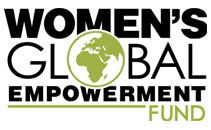 Women's Global Empowerment Fund
Women's Global Empowerment Fund